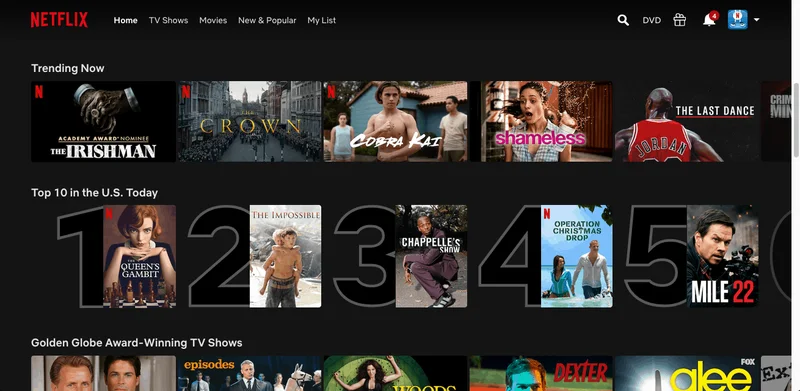XLM Insight | Stellar Lumens News, Price Trends & Guides
XLM Insight | Stellar Lumens News, Price Trends & Guides
So, Netflix dropped a press release yesterday, Netflix Announces Ten-For-One Stock Split, and the corporate-speak was so thick you could cut it with a knife. They’re doing a 10-for-1 stock split. The official reason? To make the stock "more accessible to employees."
Give me a break.
I can just picture the boardroom meeting. A bunch of executives in thousand-dollar sweaters, sipping San Pellegrino, brainstorming ways to put a positive spin on what is, at its core, a cosmetic procedure. "Accessibility! Yes, Johnson, that's it! We're doing it for the little guy! For our hardworking code monkeys and content acquisition folks!" It’s a line so perfectly polished, so utterly disingenuous, it almost commands respect.
This is a stupid move. No, 'stupid' isn't right—it's a calculated, cynical move. In an age of fractional shares, where anyone with a Robinhood account and twenty bucks can own a piece of Netflix, the argument that a $700+ stock is "inaccessible" is a complete and utter fantasy. Nobody is priced out anymore. This isn't 1995.
So what is it, really? It’s a magic trick. A stock split is like taking a dollar bill and getting ten dimes back. You don’t have more money, you just have more pieces of metal jingling in your pocket. The company’s value doesn't change. The fundamentals don't change. Nothing changes, except the number on the screen. It's pure psychology, designed to make an expensive stock feel cheap to retail investors who don't know any better. And why would Netflix need to do that right now?
Let's not forget the context here. This announcement comes right after a Q3 earnings report that was, let's say, a mixed bag of tricks. On one hand, they crowed about good sales and record ad revenue. Fantastic. But buried in the numbers was a little detail: a surprise $619 million expense from a Brazilian tax issue dating back to 2022.
Management waved it off as a "cost of doing business." A cost of doing business? That’s over half a billion dollars they just found in the couch cushions? It’s an accounting oopsie that would bankrupt a small nation. This isn't some rounding error; it’s a sign that the international landscape is a minefield, and sometimes the mines go off. They’re telling us this is about employee morale, but the numbers just don't...

And while they’re busy splitting their stock to make it seem more affordable, analysts at Morningstar are screaming from the rooftops that the stock is already "moderately overvalued" with a fair value estimate of $770, according to their analysis After Earnings, Is Netflix Stock a Buy, a Sell, or Fairly Valued?. So, which is it? Is the stock so valuable that it needs to be split for the common folk, or is it an overinflated balloon waiting for a pinprick? Can it be both?
This split feels less like a confident stride into the future and more like a desperate attempt to change the subject. The streaming wars are a brutal, bloody affair now. Netflix used to be the undisputed king of the hill, the only game in town. Now, they’re fighting a multi-front war against Disney, Warner Bros. Discovery, Apple, and Amazon—behemoths with deep pockets and their own massive content libraries. Netflix's "narrow moat," as the analysts call it, is looking more like a shallow puddle every day. And what happens when that puddle dries up?
The whole thing stinks of financial engineering. The era of hyper-growth, of just throwing a new show on the platform and watching millions of new subscribers roll in, is over. The U.S. market is saturated. Now, growth has to be squeezed out through price hikes and ad tiers, which is a much harder, uglier game.
The ad business is their great new hope, and offcourse, the initial numbers look good. They’re doubling ad sales, great. But is that new revenue, or are they just converting full-price subscribers into cheaper, ad-supported ones? We don't have a clear picture of that mix shift yet, and I suspect they'd rather we didn't. It’s easier to just shout "10-for-1 split!" and hope everyone gets distracted by the shiny object.
This is a confidence game. They want you to feel like the stock is a bargain after the split. They want you to ignore the Brazilian tax bombshells, the brutal competition, and the fact that their domestic growth has hit a wall. They want you to look at the ten dimes in your hand and believe you’re richer than when you had a single dollar bill.
Then again, maybe I'm the crazy one. Maybe this really is a benevolent gesture for their employees, and the timing is just a wild coincidence. But I've been watching this industry for too long. Companies don't make moves like this out of the goodness of their hearts. They make them when they feel the pressure mounting. This isn't a gift; its just a game.
Let's call this what it is: a distraction. A piece of financial theater designed to juice the stock price and lure in a new wave of retail money before the real challenges set in. It’s a move born from anxiety, not strength. Netflix is still the biggest streamer on the block, but the block is getting a lot rougher, and they know it. This split isn't the sign of a company at the top of its game; it's the sign of a company that's starting to worry about how to stay there.